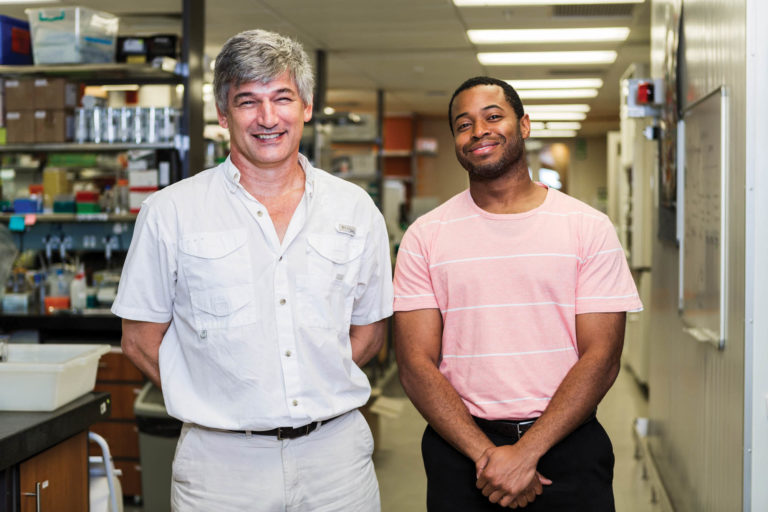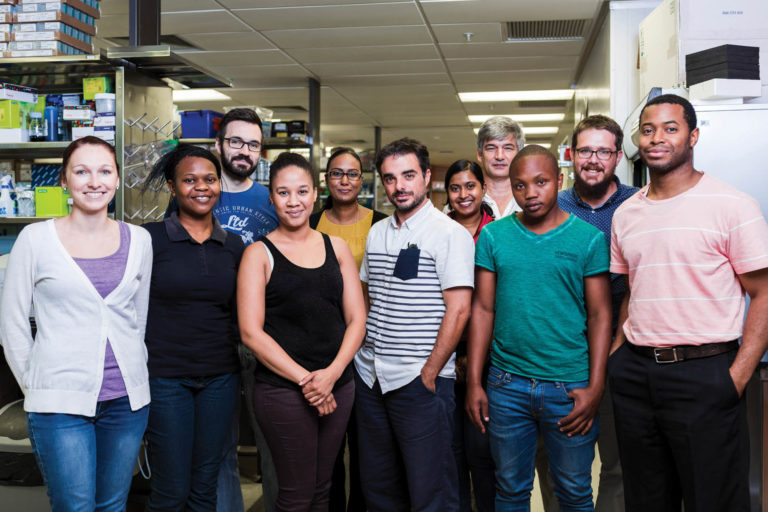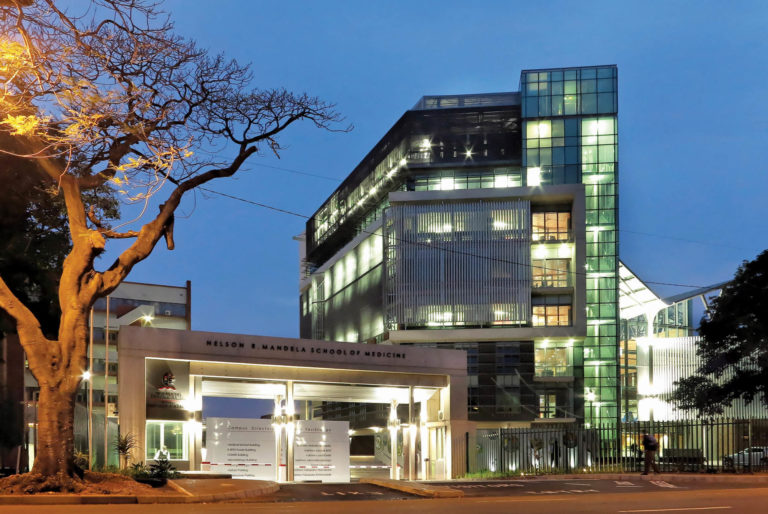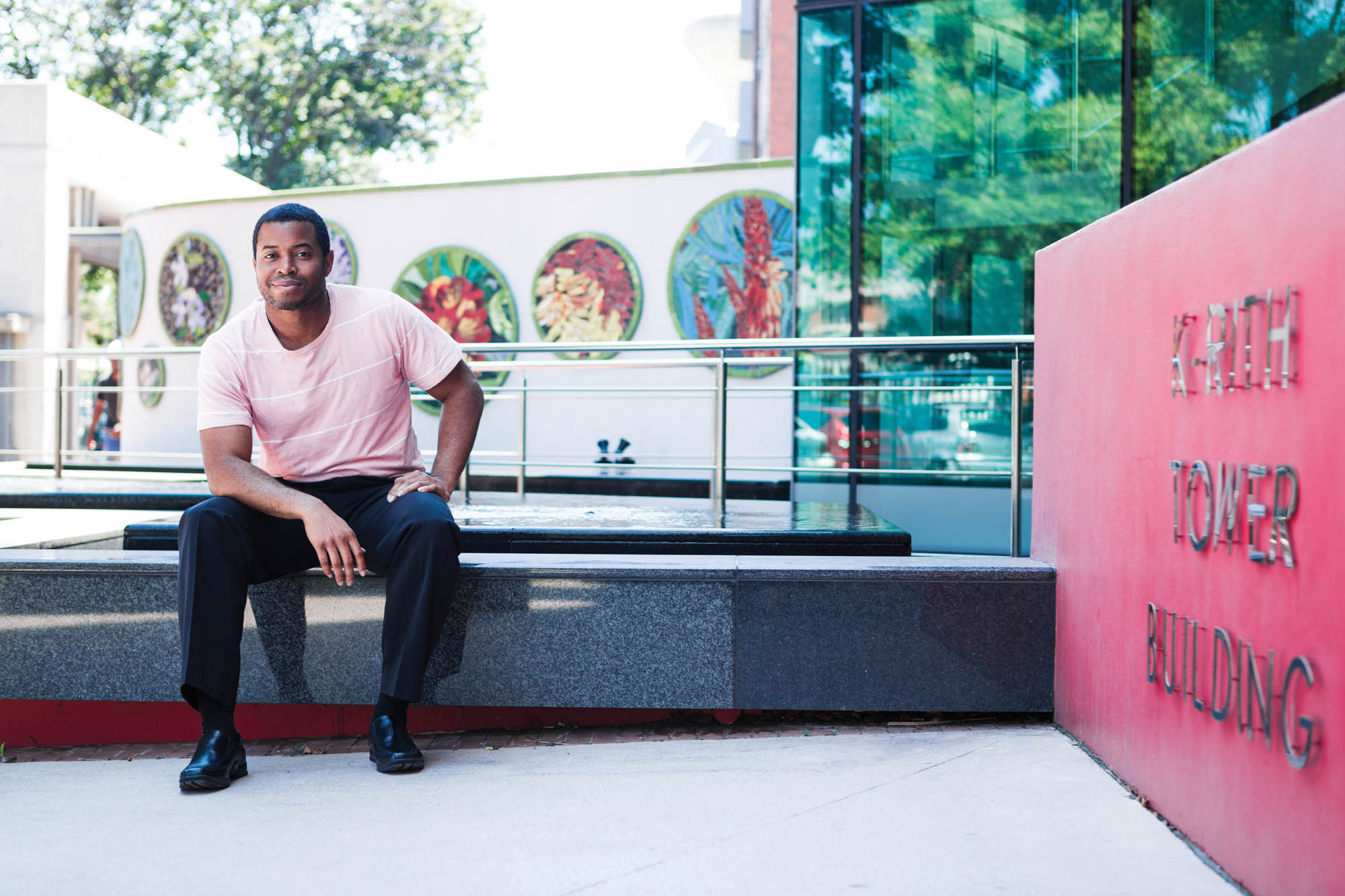By Peggy Reisser
Photos by Africa Health Research Institute
More than 9,000 miles and an ocean away from the College of Medicine at the UT Health Science Center in Memphis, one of its medical students, Terrence Terrell Jones, got hands-on education and training to help him fulfill his dream of becoming a physician-scientist.
Thanks to a fellowship from the Howard Hughes Medical Institute (HHMI), Jones has spent the last two years working as a researcher at what is now the Africa Health Research Institute (AHRI) in Durban, South Africa. Formerly called the KwaZulu-Natal Research Institute for Tuberculosis and HIV, the modern facility is an independent research institute established through a collaboration by Howard Hughes, health-care partners, and the government.
A native of Magee, Mississippi, Jones worked to find new treatments for one of the worst pandemics in the world—tuberculosis.
“We’re trying to find drugs that target energy metabolism and determine how we can use them against bacteria specific to Mycobacterium tuberculosis,” he says. “To understand how to target this bacteria, you have to understand how it operates, how it feeds, how it grows, so you can target it with specific drugs to stop it.”

This is no small task, considering the World Health Organization has estimated 80 percent of the South African population has latent TB. The organization ranks South Africa third highest for TB burden, behind only India and China. Durban is the largest city in the KwaZulu- Natal province, a region known as a hotspot of drugresistant TB.
Jones, 35, always knew he wanted to be a researcher, but getting the spot in South Africa took plenty of effort. He was introduced to the unique fellowship opportunity by UT Health Science Center mentors. He first had to apply to the Howard Hughes organization for the fellowship and then make a case for being the only fellow from the United States to be assigned to the Durban institute.
He’d already spent the summer of 2014 in a program at the University of Alabama conducting research for the National Institutes of Diabetes and Digestive and Kidney Diseases on energy metabolism and oxidative stress on human umbilical vein epithelial cells.
“Most of the things I wrote about doing in 2014 are similar to things that I am doing here at the AHRI,” he says.
Instead of human cells, his South Africa research focused on strains of bacteria that cause TB and are resistant to multiple drugs. “We are looking at the bioenergetics (energy transformation) of Mycobacterium tuberculosis,” he says. In laymen’s terms, he and fellow researchers study Mycobacterium from surgical lung samples of TB patients.
Jones says he did not fear the disease. “I worked with TB every day, and there’s always the possibility that you can be exposed. But I’m more likely to get TB walking in the street than I am from working in the lab.”

Typically, the Howard Hughes fellowship lasts one year, but Jones successfully applied to retain the funding for a second year.
“Terrence has changed the culture in my lab,” says Andries Steyn, professor at the University of Alabama and an investigator at the Africa institute. “He is a super-enthusiastic, smart scientist who participates in a range of projects. His clinical knowledge provides my lab with unique insight into human pulmonary TB. Lastly, he is recognized by all at AHRI to be a true Southern gentleman.”
Susan Brewer, UTHSC associate dean of student affairs and admissions, says Jones is an ambassador to the people in his research group and to his funders.
“We are delighted that Terrence is finding such success in our Scholar’s Year Program,” she says. The program is available to medical students who have completed their second or third years and are interested in completing a year-long experience in research, international medicine or another scholarly project.
Jones returned to Memphis and UTHSC in April to continue medical school training. He will graduate late, but he says he wouldn’t trade the experience for anything.
“It has been very interesting, and I think I’ve grown a deep love for the type of research that has been done and an appreciation for how advances in medicine can come from doing bench (laboratory) research and translational (laboratory to clinical) research,” he says.
And that’s the goal of the fellowship. “The HHMI Med Fellows Program is one of the few in the nation that enables MD and DVM students to engage in very high-quality research for an entire year,” says David Asai, senior director of science education with Howard Hughes. “This engagement is perhaps the best way for talented students at this stage in their training to understand the powerful opportunity that emerges at the intersection of medicine and laboratory research.”
The fellowship has also given Jones an appreciation for the people and culture that welcomed him abroad and for the country that is his home. “Meeting different people actually makes me appreciate home,” he says. “It makes you understand the blessings you’ve received.”




